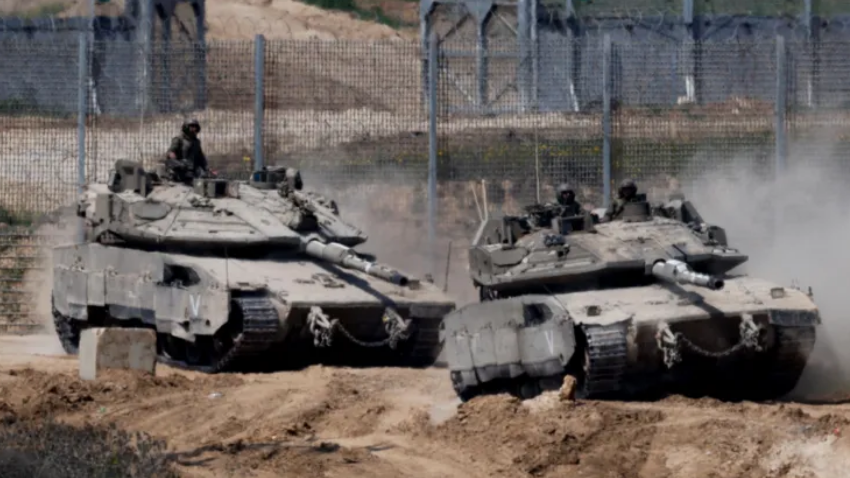Israel’s security cabinet has approved a new phase in its military campaign against Hamas, authorizing a sweeping plan to intensify operations in Gaza, seize territory, and move parts of the civilian population southward — a decision that has drawn condemnation from humanitarian organizations and sparked political debate.
An Israeli official said Monday that the cabinet, meeting the night before, had unanimously approved a military strategy proposed by Chief of Staff Lt. Gen. Eyal Zamir. The plan includes the capture and long-term control of areas within Gaza, mass displacement of the population, and intensified strikes against Hamas infrastructure both above and below ground.
Prime Minister Benjamin Netanyahu endorsed the plan, calling it “a good plan” that would help secure two central goals: defeating Hamas and recovering the remaining Israeli hostages. “We are increasing the pressure with the aim of bringing our people home and defeating Hamas,” said Lt. Gen. Zamir during a visit to a naval base. Tens of thousands of reservists are being mobilized to support the expanded offensive.
The plan reportedly includes widening the buffer zone along Gaza’s borders and establishing new Israeli-controlled areas, with the goal of increasing leverage in ongoing ceasefire and hostage negotiations.
However, critics have questioned the strategy’s effectiveness and humanitarian implications. The Hostages and Missing Families Forum accused the government of prioritizing territorial control over the lives of hostages, stating that the move goes against public sentiment in Israel.
Meanwhile, Israel also approved, in principle, a new system to distribute humanitarian aid through private companies, bypassing traditional aid organizations such as the United Nations. This could effectively end the two-month blockade, but the UN and other international agencies have refused to cooperate, saying the proposal violates core humanitarian principles and endangers civilians.
The Humanitarian Country Team (HCT), which includes UN agencies, warned that the plan would disrupt existing aid networks and force civilians to enter militarized zones to receive essential supplies. “It appears designed to reinforce control over life-sustaining items as a pressure tactic – as part of a military strategy,” the group said in a statement.
Since Israel resumed its offensive on March 18 following a two-month ceasefire, Gaza’s health ministry — run by Hamas — reports at least 2,459 additional deaths, bringing the total to over 52,000 since October. The UN continues to warn of worsening conditions, with widespread food shortages and the collapse of basic medical services.


